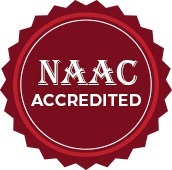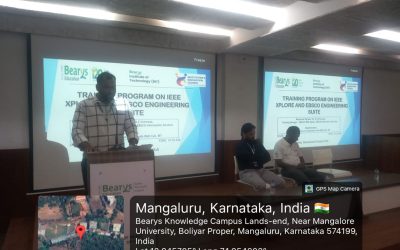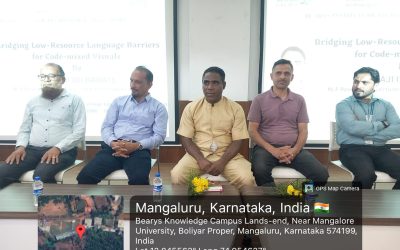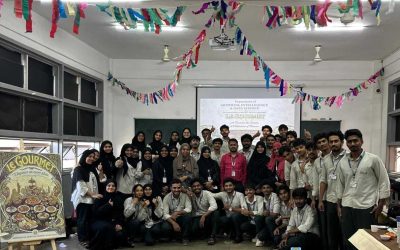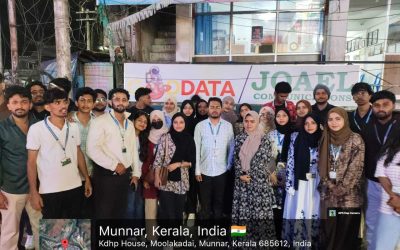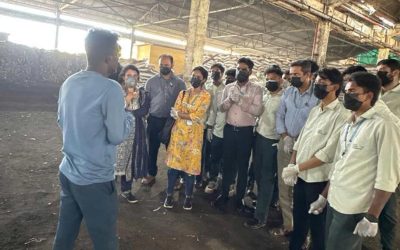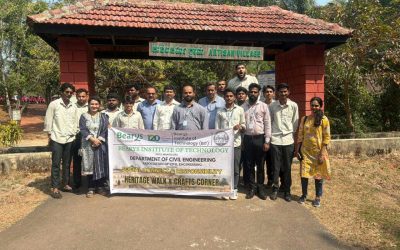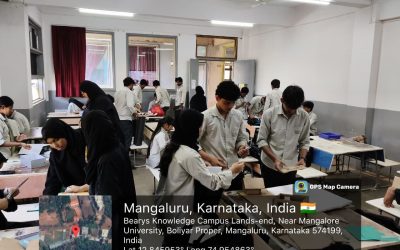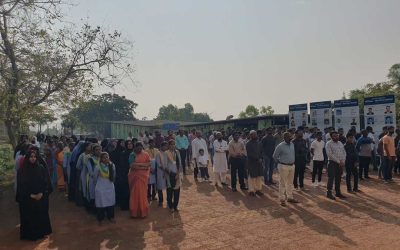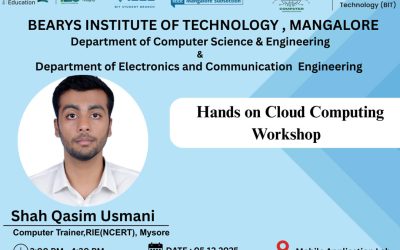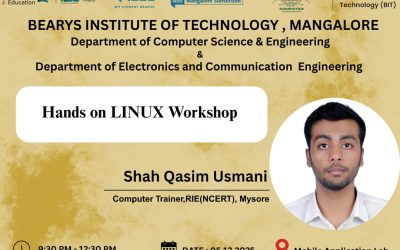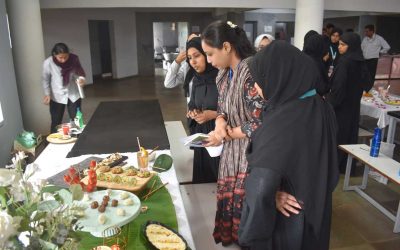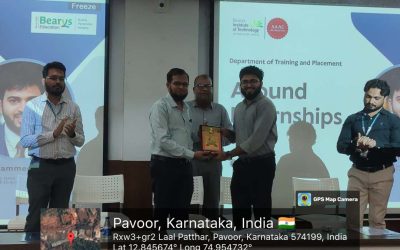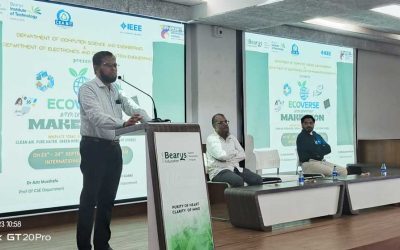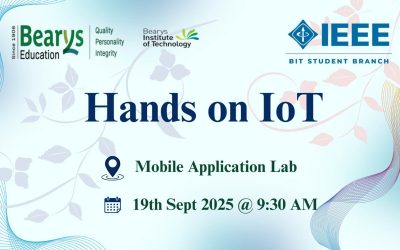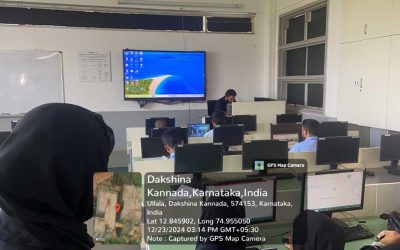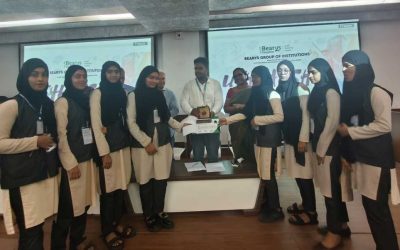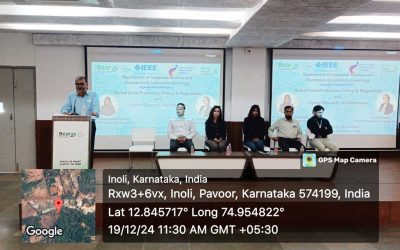Department of Computer Science & Engineering
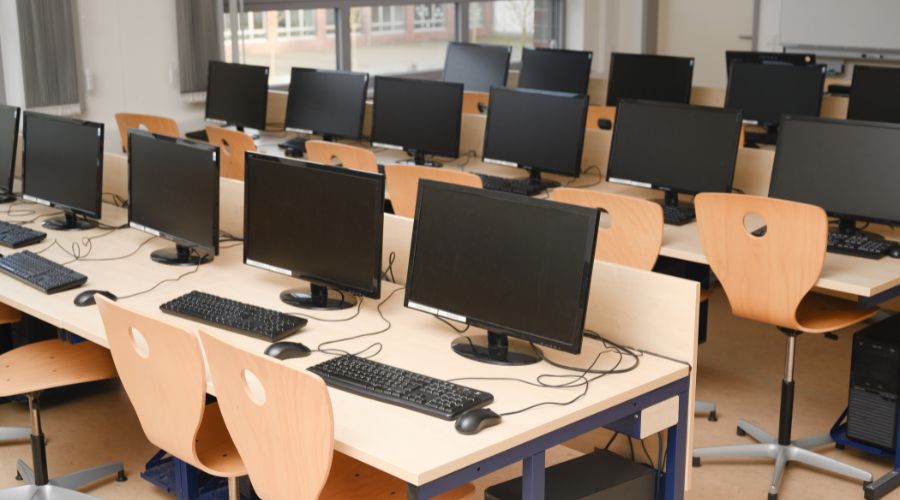
VISION
MISSION
2. Creating knowledge of fundamental principles and innovative technologies through research with dedicated work force and cutting edge facilities.
3. To instil the values of preserving and protecting nature and resources to build green and sustainable environment and to craft better mankind with strong ethical and moral values for working towards the betterment of the society.
VISION
2. Creating knowledge of fundamental principles and innovative technologies through research with dedicated work force and cutting edge facilities.
3. To instil the values of preserving and protecting nature and resources to build green and sustainable environment and to craft better mankind with strong ethical and moral values for working towards the betterment of the society.
PROGRAM OUTCOMES (POs)
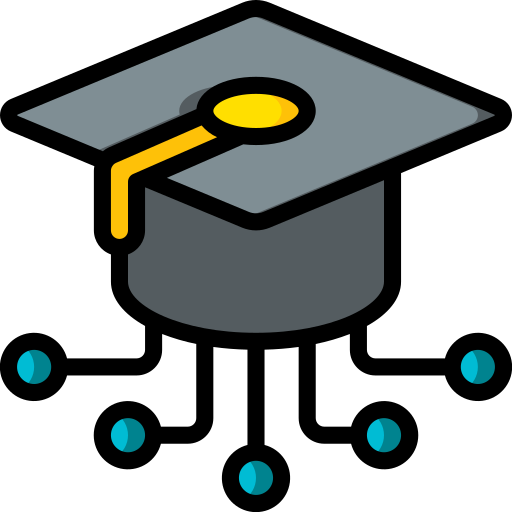
1. Engineering Knowledge
Apply the knowledge of mathematics, science, engineering fundamentals, and an engineering specialization to the solution of complex engineering problems.

2. Problem analysis
Identify, formulate, review research literature, and analyse complex engineering problems reaching substantiated conclusions using first principles of mathematics, natural sciences, and engineering sciences.

3. Design/ Development of Solutions
Design solutions for complex engineering problems and design system components or processes that meet the specified needs with appropriate consideration for the public health and safety, and the cultural, societal, and environmental considerations.

4. Conduct investigations of complex problems
Use research-based knowledge and research methods including design of experiments, analysis and interpretation of data, and synthesis of the information to provide valid conclusions.

5. Modern Tool Usage
Create, select, and apply appropriate techniques, resources, and modern engineering and IT tools including prediction and modelling to complex engineering activities with an understanding of the limitations.

6. The Engineer and Society
Apply reasoning informed by the contextual knowledge to assess societal, health, safety, legal and cultural issues and the consequent responsibilities relevant to the professional engineering practice.
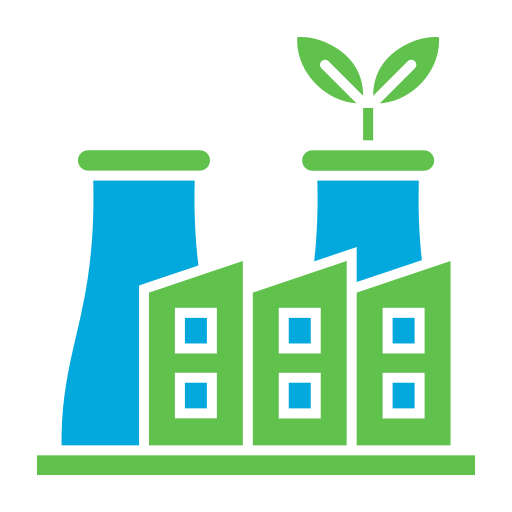
7. Environment and Sustainability
Understand the impact of the professional engineering solutions in societal and environmental contexts, and demonstrate the knowledge of, and need for sustainable development.

8. Ethics
Apply ethical principles and commit to professional ethics and responsibilities and norms of the engineering practice.

9. Individual and Team Work
Function effectively as an individual, and as a member or leader in diverse teams, and in multidisciplinary settings.
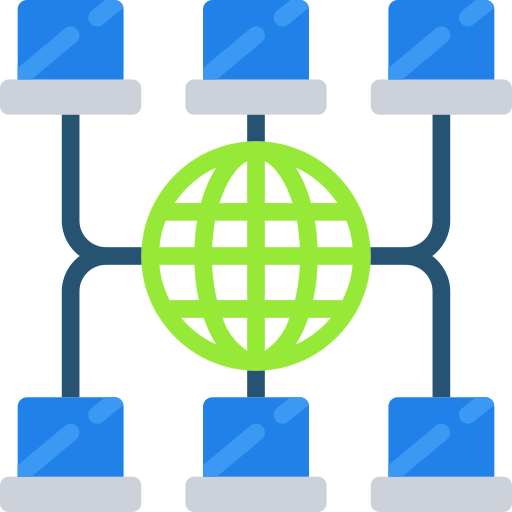
10. Communication
Communicate effectively on complex engineering activities with the engineering community and with society at large, such as, being able to comprehend and write effective reports and design documentation, make effective presentations, and give and receive clear instructions.

11. Project Management and Finance
Demonstrate knowledge and understanding of the engineering and management principles and apply these to one’s own work, as a member and leader in a team, to manage projects and in multidisciplinary environments.

12. Life-long learning
Recognize the need for, and have the preparation and ability to engage in independent and life-long learning in the broadest context of technological change.
Program Specific Outcomes (PSOs):
1. Professional IT development and problem solving skills.
2. Preparing graduands for higher education and competitive exams.
3. Successful career and Entrepreneurship.
COURSE OUTCOMES (COs)
Bachelor of Engineering
2022 Scheme
Computer Science & Engineering
2021 Scheme
Computer Science & Engineering
2018 Scheme
Computer Science & Engineering
COURSE OUTCOMES (COs)
Postgraduate Engineering
2022 Scheme
Computer Science & Engineering
2020 Scheme
Computer Science & Engineering
Considered one of the fastest-growing engineering disciplines, Computer Science Engineering involves planning, designing, and executing software projects. The program includes a wide variety of engineering tasks including design and development of computer hardware, the study of basic building blocks of computers, analysis and design of computer algorithms, development of system and application software thus opening a multitude of challenging career opportunities for students. The department is equipped with a range of the latest infrastructure and facilities that are needed for a detailed and comprehensive understanding of the subject.
Our Faculty
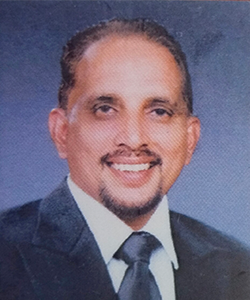
Dr. Aziz Musthafa
Teaching exp. 27 years,
Industry exp. 5 years.
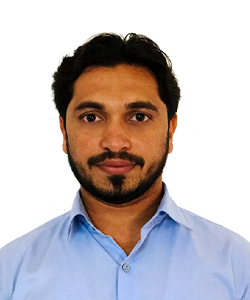
Mr. Mohammed Sinan
Teaching exp. 12 years.
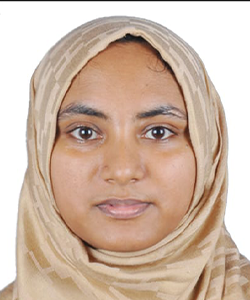
Dr. Nubila Jaleel
Teaching exp. 2 years.
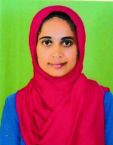
Ms. Umme Najma S K
MISTE
Student Advisor, IEEE
Teaching exp. 8 years.
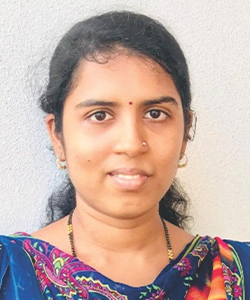
Mrs. Akshatha S A
Teaching exp. 3 years.
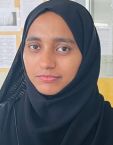
Mrs. Umaira
Teaching exp. 1 Year
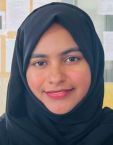
Ms. Nusaiba
Teaching exp. 1 year
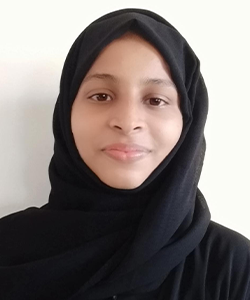
Ms. Suhaiba
exp. 10 months
Technical Staff

Mr. Mahammad Imthiyaz
exp. 3.7 years
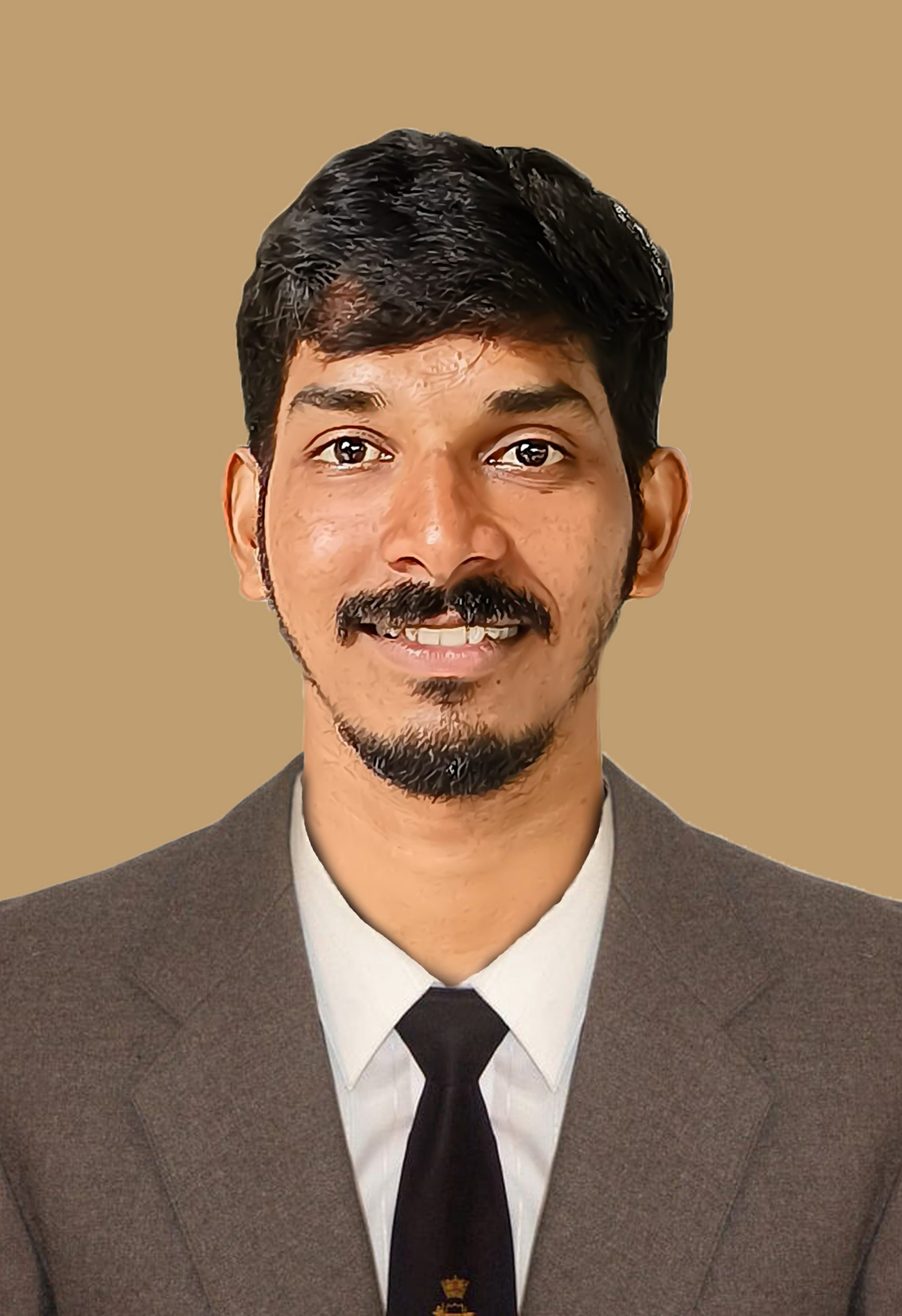
Mr. Manohara
exp. 5.6 years.
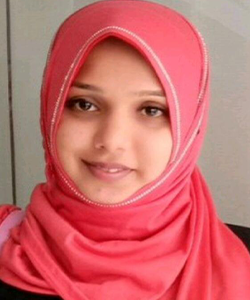
Mrs. Mumthaz M
exp. 9.6 years.
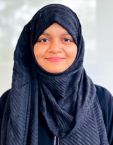
Ms. Fathimath Asreena

Ms. Ayshath Fahiza
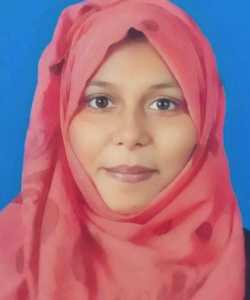
Reema Fathima
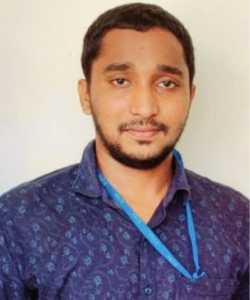
Abubakkar Siddique
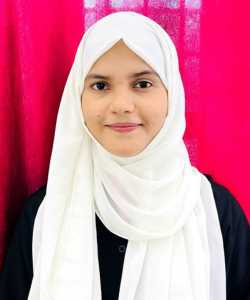
Ms Sadika
1. COMPUTER PROGRAMMING LAB
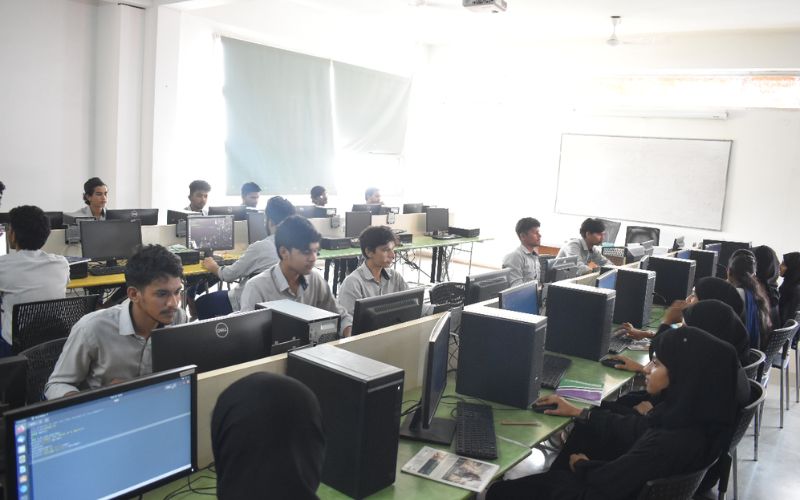
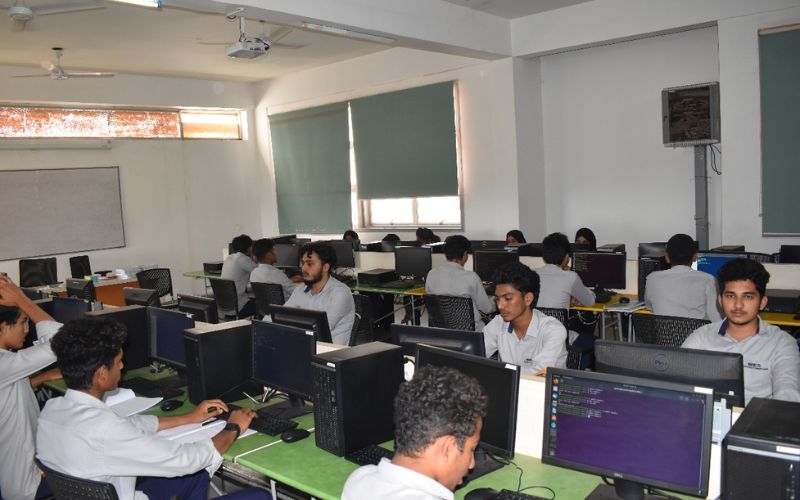
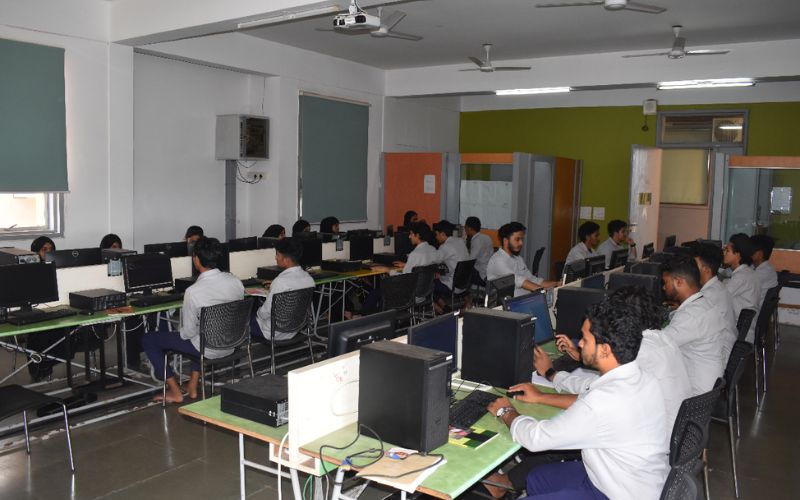
A computer programming lab is a space where students can learn and practice coding skills using various programming languages and tools. It provides access to computers and software, as well as guidance and support from instructors or lab assistants. Programming labs are essential for hands-on learning and developing practical programming skills.
2. DBA / COMPUTER GRAPHICS LAB
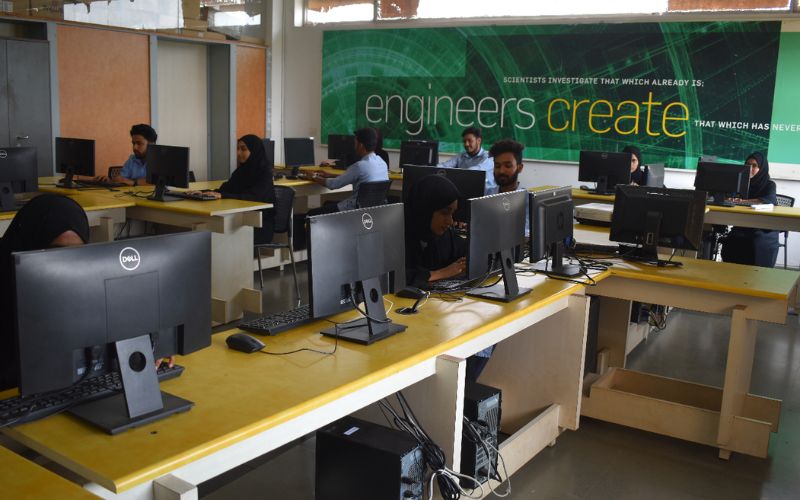
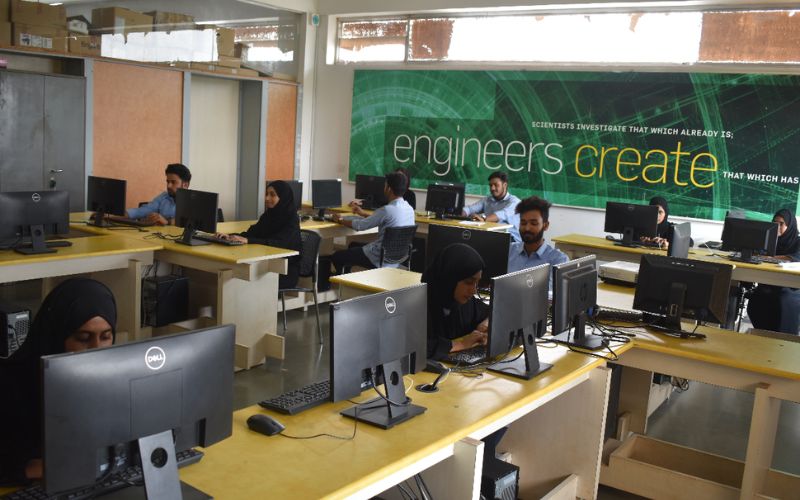
The database and computer graphics lab is specifically designed to facilitate student learning and practice in the fields of database management and computer graphics design. Equipped with computers and specialized software, the lab offers resources and support from instructors or lab assistants to help students create and implement database systems and design visual graphics.
3. MOBILE APPLICATION DEVELOPMENT LABORATORY
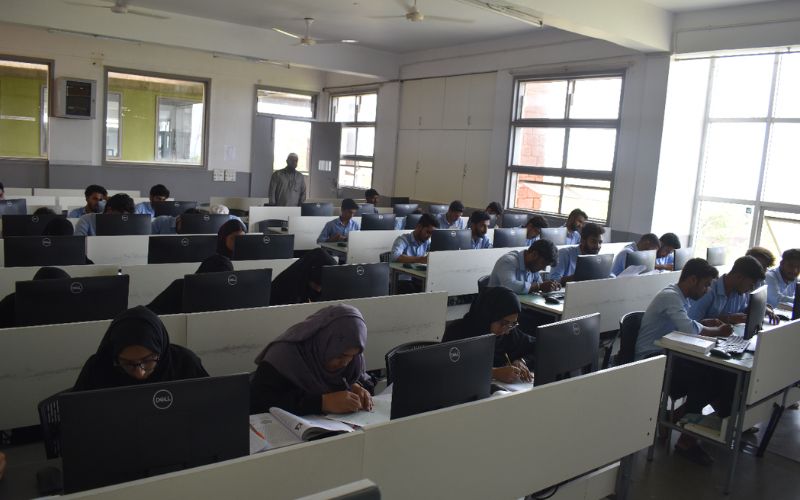
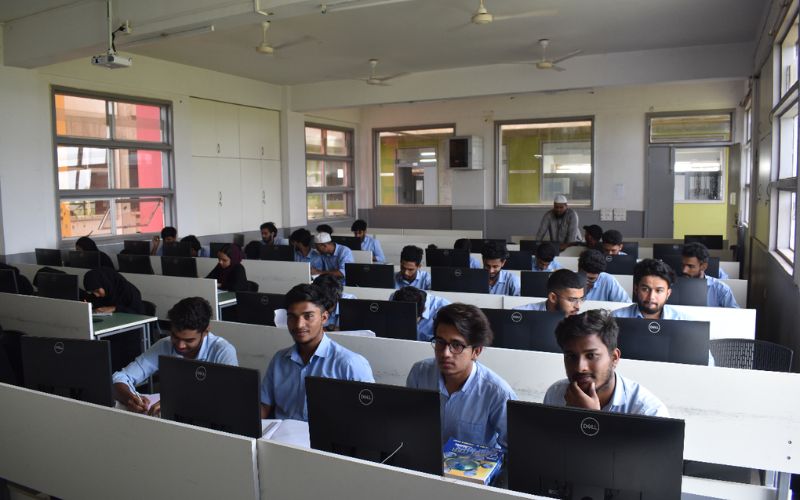
The mobile application development lab is a designated area that provides students with the tools and resources necessary to learn and develop their mobile app development skills. Equipped with essential hardware and software, students can design, build, and test mobile applications for various platforms such as Android, with access to guidance and support from knowledgeable staff.
4. EC & LD /MICROPROCESSORS LAB
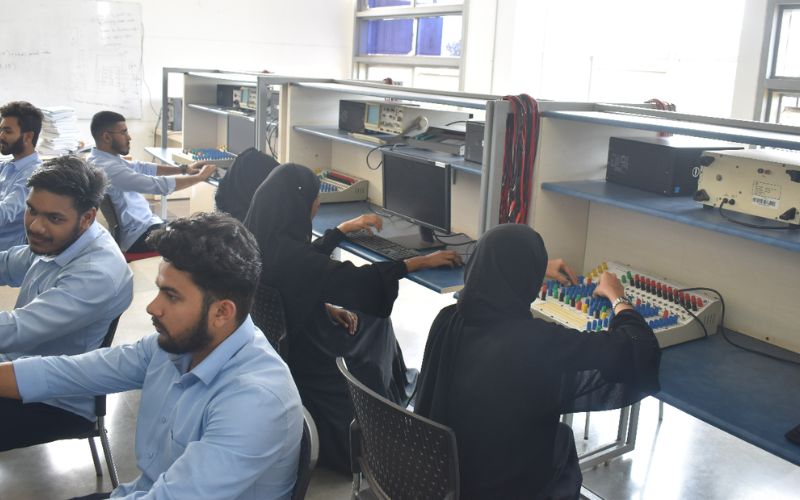
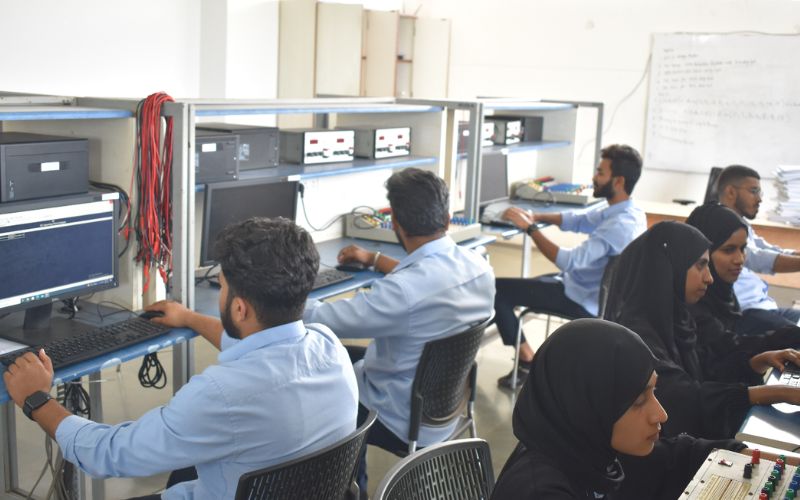
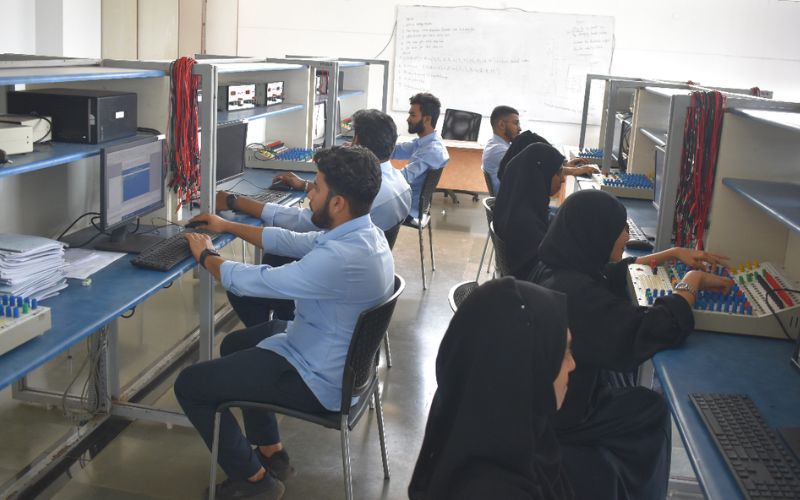
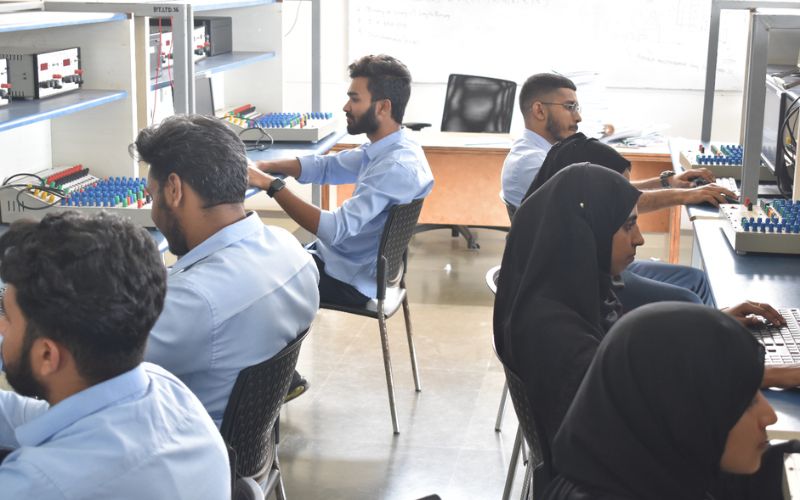
The analog and digital electronics lab is a dedicated environment where students can learn and explore the principles of electronic circuits, devices, and systems. Equipped with essential hardware and software, students can design and test analog and digital circuits for diverse applications, with access to knowledgeable staff for guidance and assistance.
5. DATA STRUCTURES/ALGORITHMS LAB
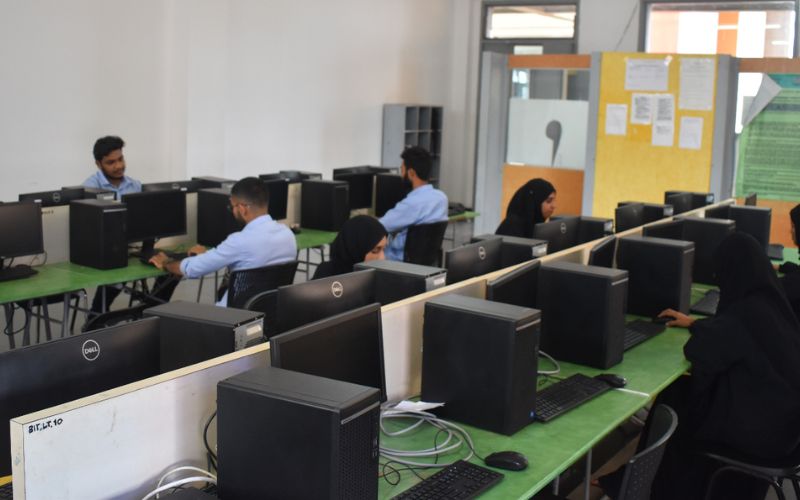
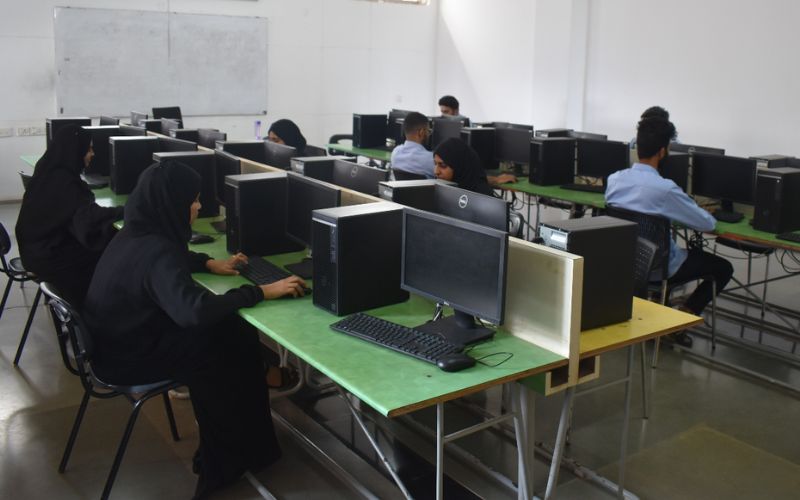
A data structure and algorithm lab is a specialized area where students can study and experiment with the foundational principles of computer science, namely data structures and algorithms. The lab offers access to computer equipment and software, as well as instructional resources and assistance from lab staff. Through the lab, students can hone their problem-solving skills and develop optimized algorithms to manipulate data structures effectively.
6. NETWORK LAB / SERVER ROOM


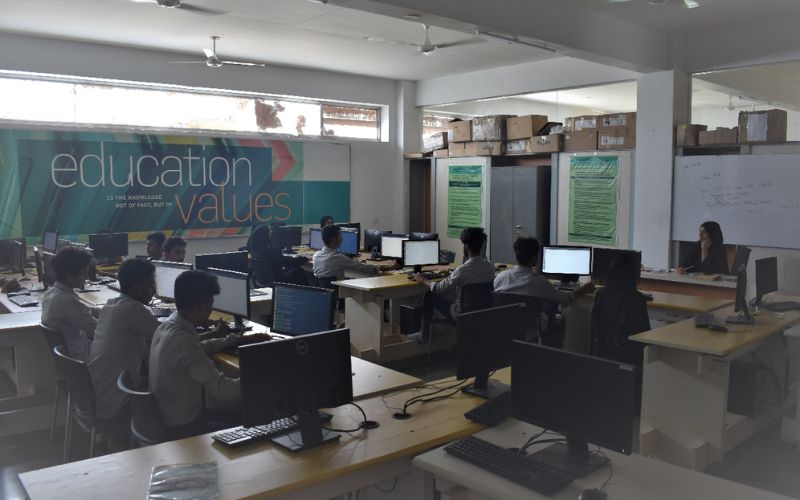

The computer networks lab is a specialized facility where students can acquire hands-on experience in computer networking. Equipped with the necessary hardware and software, students can design, configure and test computer networks, learning various protocols and techniques.
EVENTS
Training program on IEEE Xplore, EBSCO engineering suite held at BIT
Mangaluru: A training program on IEEE Xplore and the EBSCO Engineering Suite was held at Bearys Institute of Technology on February 10, 2026, at the International Seminar Hall.
Session on bridging low-resource language barriers held at BIT ECE
Mangaluru: The IEEE Student Branch of Bearys Institute of Technology (BIT), Mangaluru, organised a technical interactive session on “Bridging Low-Resource Language Barriers for Code-mixed Visuals” at the International Seminar Hall on Monday.
Food Fest “Le Gourmet” – SCR Activity
Bearys Institute of Technology (BIT), Mangaluru, through the Department of Artificial Intelligence and Data Science, successfully organized a Food Fest titled “Le Gourmet” as part of the Social Connect & Responsibility (SCR) subject on 27 December 2025.
AI & DS Department Industrial Visit 2025 to Munnar and Kochi
The Department of Artificial Intelligence and Data Science, Bearys Institute of Technology (BIT), Mangaluru, in association with BIT-ADVA, organized a three-day industrial visit to Munnar and Kochi for seventh semester students.
Bridging Engineering Education with Social Responsibility: Civil Engineering Students’ Outreach Visit to MCC Waste Management Plant
The Department of Civil Engineering, Bearys Institute of Technology, Mangaluru, corganized a...
Experiential Learning through Heritage and Social Responsibility: Civil Engineering Students’ Visit to Pilikula
The Department of Civil Engineering, Bearys Institute of Technology, Mangaluru, organized an...
National Energy Conservation Week 2025 – ECO Innovation Challenge – Best Out of Waste
Bearys Institute of Technology (BIT), Mangaluru, in association with Karnataka Renewable Energy Development Limited (KREDL), celebrated National Energy Conservation Week 2025 with a series of awareness and student-centric activities.
INTERNSHIP PROGRAM – CSE & ECE DEPARTMENTS
The Departments of Computer Science and Engineering (CSE) and Electronics and Communication...
REPORT ON REPUBLIC DAY CELEBRATION – 2023
The Department of Computer Science and Engineering (CSE) actively participated in the 74th Republic Day Celebration held on 26th January 2023 on the college campus. The celebration aimed to honor the adoption of the Indian Constitution and to instill patriotism and national pride among students and staff.
Hands-on Cloud Computing Workshop Organized at Bearys Institute of Technology
The Departments of Computer Science & Engineering and Electronics & Communication Engineering at Bearys Institute of Technology (BIT), Mangalore, in collaboration with the IEEE BIT Student Branch and IEEE Mangalore Subsection, conducted a Hands-on Cloud Computing Workshop at the Mobile Application Lab.
Hands-on Linux Workshop Held at Bearys Institute of Technology
The Departments of Computer Science & Engineering and Electronics & Communication Engineering of Bearys Institute of Technology, Mangalore, in association with the IEEE BIT Student Branch and IEEE Mangalore Subsection, organized a Hands-on Linux Workshop on Friday at the Mobile Application Lab.
Report on RADIANCE – Cultural Fest
The Department of Computer Science and Engineering successfully organized its annual cultural event RADIANCE on 23rd May 2024, celebrating creativity, talent, and student enthusiasm. The fest provided a vibrant platform for students to exhibit their artistic abilities and take a refreshing break from their academic routine.
BIT Signs MoU with JumpWhere Solutions to Bridge Academia-Industry Gap
The Departments of Computer Science and Engineering (CSE), Artificial Intelligence & Data Science (AI & DS), and Electronics & Communication Engineering (ECE) of Bearys Institute of Technology signed a Memorandum of Understanding (MoU) with JumpWhere Solutions LLP, an ed-tech and finishing school committed to bridging the gap between academia and industry.
Ecoverse Makethon Inspires Innovation at BIT
The Departments of Computer Science and Engineering and Electronics and Communication Engineering at Bearys Institute of Technology organized a 24-hour inter-department Makethon – “Ecoverse” on September 23rd and 24th at the Bearys Knowledge Campus, Mangalore.
Hands-on IoT Workshop at BIT Sparks Innovation Among Students
Bearys Institute of Technology (BIT), in collaboration with IEEE Mangalore Subsection, successfully hosted an engaging Hands-on IoT Workshop for students of the ECE and CSE departments. The event was coordinated by Dr. Abdullah Gubbi, HOD of ECE, and took place on September 19, 2025.
Three-Day Faculty Development Program -2025
A three-day Faculty Development Program (FDP) titled “Advancing Pedagogy and Professional Growth” was inaugurated on January 21, 2025,and concluded on 23rd January 2025 at the Bearys Institute of Technology (BIT), Mangalore.
Three-Day Faculty Development Program on Advancing Pedagogy and Professional Growth Begins
The Department of Civil Engineering, Computer Science and Engineering, and Electronics and Communication Engineering at Bearys Institute of Technology (BIT), Mangalore, inaugurated a three-day Faculty Development Program (FDP) titled “Advancing Pedagogy and Professional Growth” on January 21, 2025.
Salesforce Session – In Continuation to Online Classes
The Department of Computer Science and Engineering organized a special session on “Salesforce – In Continuation to Online Classes” on 23rd December 2024 as part of the BIT Server–DCD Principal 2021 initiative. The session aimed to enhance students’ understanding of cloud-based technologies and strengthen their practical knowledge of Salesforce applications in modern industries.
Report on UTHKARSH – 2024
The Bearys Institute of Technology successfully organized UTHKARSH 2024, an interdepartmental cultural and talent showcase, on 21st December 2024. The event aimed to provide a vibrant platform for students to display their artistic abilities, creativity, and enthusiasm while strengthening the spirit of unity and collaboration within the campus.
Global Data Protection Policy
In an era where digital transformation drives every aspect of modern life, protecting data has become one of the most pressing global concerns. To raise awareness and understanding about the importance of safeguarding personal and organizational information, the IEEE EC & CS chapters jointly organized a seminar on “Global Data Protection Policy” on 19th December 2024.
Prof. Afsar Baig M
Publication
a. “Information Set based Local Directional Number for Face Recognition.” Turkish Journal of Computer and Mathematics Education (TURCOMAT) 12.10 (2021): 204-210.
b. “Action & Horror Genre Classification of Movies using Artificial Neural Network(ANN)”, International Journal of Research on Advent Technologies, Vol 1, Issue 5, E-ISSN: 2321-9637
Prof. Umaira
Publication
Umaira, Divya K.K, Department of Computer Science and Engineering, P. A College of Engineering, Mangalore, “secured data transmission using advanced image watermarking”, Vol 7 Issue No. 6, IJESC,2017.
Prof. Mohammed Sinan
Publication
1. Geethalakshmi, V., Surya Venkatraman, Mohammed Sinan Marikattay, and V. B. Poornima. “Visual Impairment Assistance System.” Turkish Journal of Computer and Mathematics Education 12, no. 10 (2021): 294-300.
2. Geethalakshmi, Kousar, F., & Marikattay, M.S. (2019). Architecture of an IoT-based System for Cricket SupervisionArchitecture of an IoT-based System for Cricket Supervision. Journal of emerging technologies and innovative research.
3. ICS SCADA Cyber-Attack Detection and Forecast with Deep Learning Algorithms
Journal: Computer and Electrical Engineering –Elsevier
Tech Staff Mumthaz M
Publication
1. Mumthaz M, Ankitha Bekal, Poornima B V. “AN EFFICIENT IOT BASED SMART HOME AUTOMATION SYSTEM USING ARDUINO AND SMS”, International Conference on Sustainable Urban development, Resource conservation and Food security (SURF). IEEE, 2019. ( JETIR May 2019, Volume 6, Issue 5).
2. Saramath Shamshida, Fathimathul Zohara, Thameeza, Mumthaz M, “Evaluation of Credit Card Fraud Detection Using SVM and ANN“ , International Conference on Sustainable Urban development, Resource conservation and Food security (SURF), IEEE, 2019. (IJETIR May 2019, Volume 6, Issue 5).
3. Mumthaz M ,Poornima B V,Ankitha Bekal,Mudassira Tahneet B Lahori “IOT –ENABLED SMART FARM IRRIGATION SYSTEM FOR RURAL DEVELOPMENT”, International Conference on Sustainable Urban development, Resource conservation and Food security (SURF), IEEE, 2020. (IJERCSE , Vol 8, Issue 11, November 2021).
4. Poornima BV Gowda, Mumthaz M and Mudassira Tahneet B Lahori, “Analysis and Detection of Stress using FGM With CNN Methodology”, 2020, International Conference on Sustainable Urban development, Resource conservation and Food security (SURF), IEEE.

